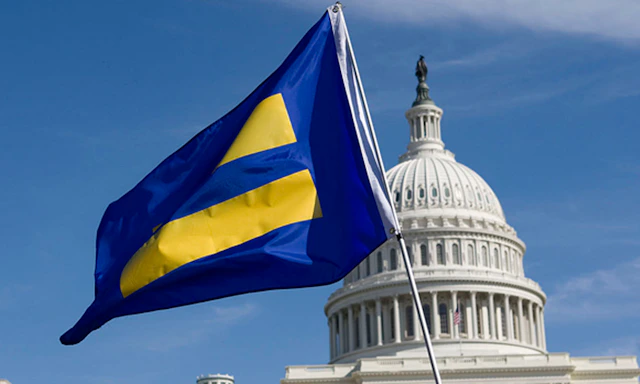
Georgia
2024
State Equality Index
Active Laws & Policies
Key:
Bostock Implementation in Non-Discrimination Laws and Policies **
** On June 15, 2020, the U.S. Supreme Court ruled in Bostock v. Clayton County, Georgia that sexual orientation and gender identity discrimination are prohibited under federal sex-based employment protections. Nevertheless, it is imperative that states continue enacting explicitly LGBTQ-inclusive comprehensive non-discrimination laws since it will likely take additional litigation for Bostock to be fully applied to all sex-based protections under existing federal civil rights law. Moreover, federal law currently lacks sex-based protections in numerous key areas of life, including public spaces and services. Lastly, there are many invaluable benefits to localizing inclusive protections even when they exist on higher levels of government. For these reasons, the SEI will continue to only award credit for state non-discrimination laws that expressly include sexual orientation and gender identity. Credit may be awarded if a state has definitively applied Bostock’s reasoning to include LGBTQ+ people under sex non-discrimination protections.
Parenting Laws
Pro-Equality Laws
- Second Parent Adoption
- Surrogacy Laws
- Foster Care Non-Discrimination
- Parental Presumption for Same-Sex Couples
- Foster Parent Training Required
- Consent to Inseminate
- De Facto Parent Recognition
Anti-Equality Laws
- Prohibition of Surrogacy
- Laws Permitting Discrimination in Adoption/Foster Placement
Hate Crimes & Criminal Justice Laws
Pro-Equality Laws
- Policy exists for both sexual orientation and gender identity: Enumerated Hate Crimes Laws - Sexual Orientation and Gender Identity
- Policy exists for both sexual orientation and gender identity: Mandatory Reporting of Hate Crime Statistics
- Elimination of Bias Rage or Panic Defense for Criminal Acts
- Policy does not exist: Prohibiting Profiling Based on Actual or Perceived LGBTQ+ Status by Law Enforcement
Anti-Equality Laws
- Policy exists: Sodomy Laws
- Policy exists: HIV/AIDS Criminalization Laws
Non-Discrimination Laws
Pro-Equality Laws
- Policy does not exist: Employment
- Policy does not exist: Housing
- Policy does not exist: Public Accomodations
- Policy does not exist: Education
- Policy does not exist: Adoption
- Policy does not exist: Foster Care
- Policy does not exist: Insurance
- Policy does not exist: Credit
- Policy does not exist: Jury Selection
- Policy exists for both sexual orientation and gender identity: Colleges & Universities
- Policy does not exist: Non-Discrimination Policy for State Employees
Anti-Equality Laws
- Restrictions on Municipal Protections
- Policy does not exist: Religious Exemptions in State Non-Discrimination Laws
Religious Refusal & Relationship Recognition
Anti-Equality Laws
- State Religious Freedom Restoration Act
- Religious Exemptions for Professional Training/Practice
- First Amendment Defense Act
Youth Laws
Pro-Equality Laws
- Anti-Bullying Laws - Enumerated Categories in Law
- Policy exists: Anti-Bullying Laws - Enumerated Model Policy
- Policy exists: Anti-Bullying Laws - Alternative Discipline
- Policy exists: Anti-Bullying Laws - Cyberbullying
- Policy exists: School Suicide Prevention Policies Required
- Protection from Conversion Therapy
- Laws to Address LGBTQ+ Youth Homelessness
- LGBTQ+ Inclusive Sex Education Laws
- Policy exists: LGBTQ+ Inclusive Juvenile Justice Policies
Anti-Equality Laws
- Policy exists: Transgender Exclusions in Sports
- Inequality in Age of Consent for Same-Sex Couples
- Policy exists: School Laws that Criminalize Youth
- Anti-Bullying Laws that Prohibit Enumeration
- Laws that Restrict Inclusion of LGBTQ+ Topics in Schools
- Laws that Restrict Student Groups in Public Schools
- Laws that Allow or Require Intentional Misgendering of Public-School Students
- Laws that Require Forcible Outing of LGBTQ+ Youth
- Laws Restricting Transgender People from Using Gendered Facilities in Public Schools
Health & Safety Laws
Pro-Equality Laws
- Policy does not exist: LGBTQ+ Non-Discrimination Protections in ACA Exchanges
- Ban on Insurance Exclusions for Trans Healthcare
- Policy exists: Transgender Healthcare Inclusion in State Medicaid
- Trans Inclusive Health Benefits for State Employees
- Name and Gender Marker Updates on Driver's Licenses
- Name and Gender Marker Updates on Birth Certificates
- Policy exists for both sexual orientation and gender identity: Health Data Collection - BRFSS
- Policy does not exist: Health Data Collection - YRBSS
- All-Gender Single Occupancy Facilities
Anti-Equality Laws
- Laws Prohibiting Transgender People from Receiving Appropriate ID
- Policy exists: Transgender Exclusions in State Medicaid Coverage
- Policy exists: Bans on Gender Affirming Care for Transgender Youth
- Laws Restricting Transgender People from Using Restrooms in Certain Public Spaces
- Laws Aiming to Restrict Drag Performance
Love Conquers Hate


